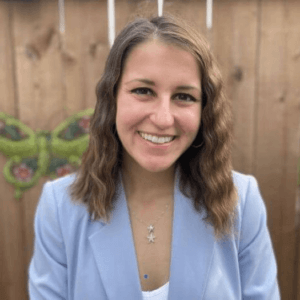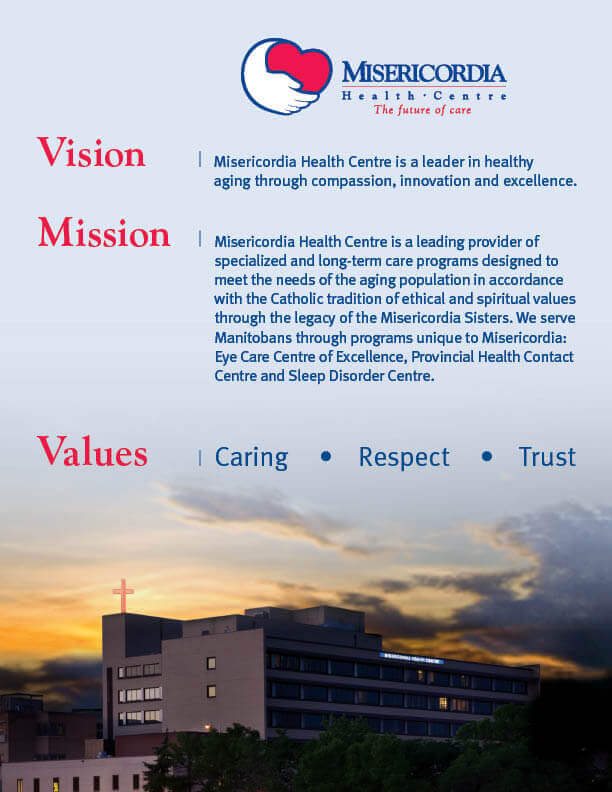Author: Heidi Klaschka
Congratulations to Dr. Preetha Krishnan!
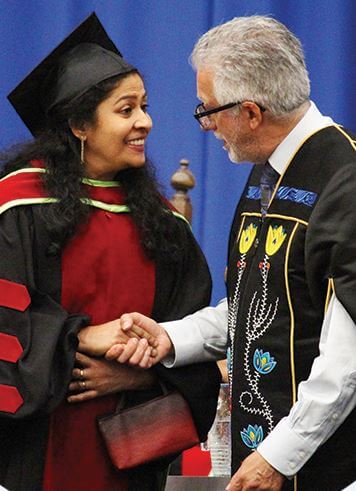
Family Update – Meet Mona!
Ophthalmologist first Manitoban to receive Lifetime Achievement Award
The singing nurse goes to Vegas
Spiritual care proved helpful for residents of care home during COVID lockdowns
Easy Street supporting Manitobans on the long COVID front line
Easy Street supporting Manitobans on the long COVID front line
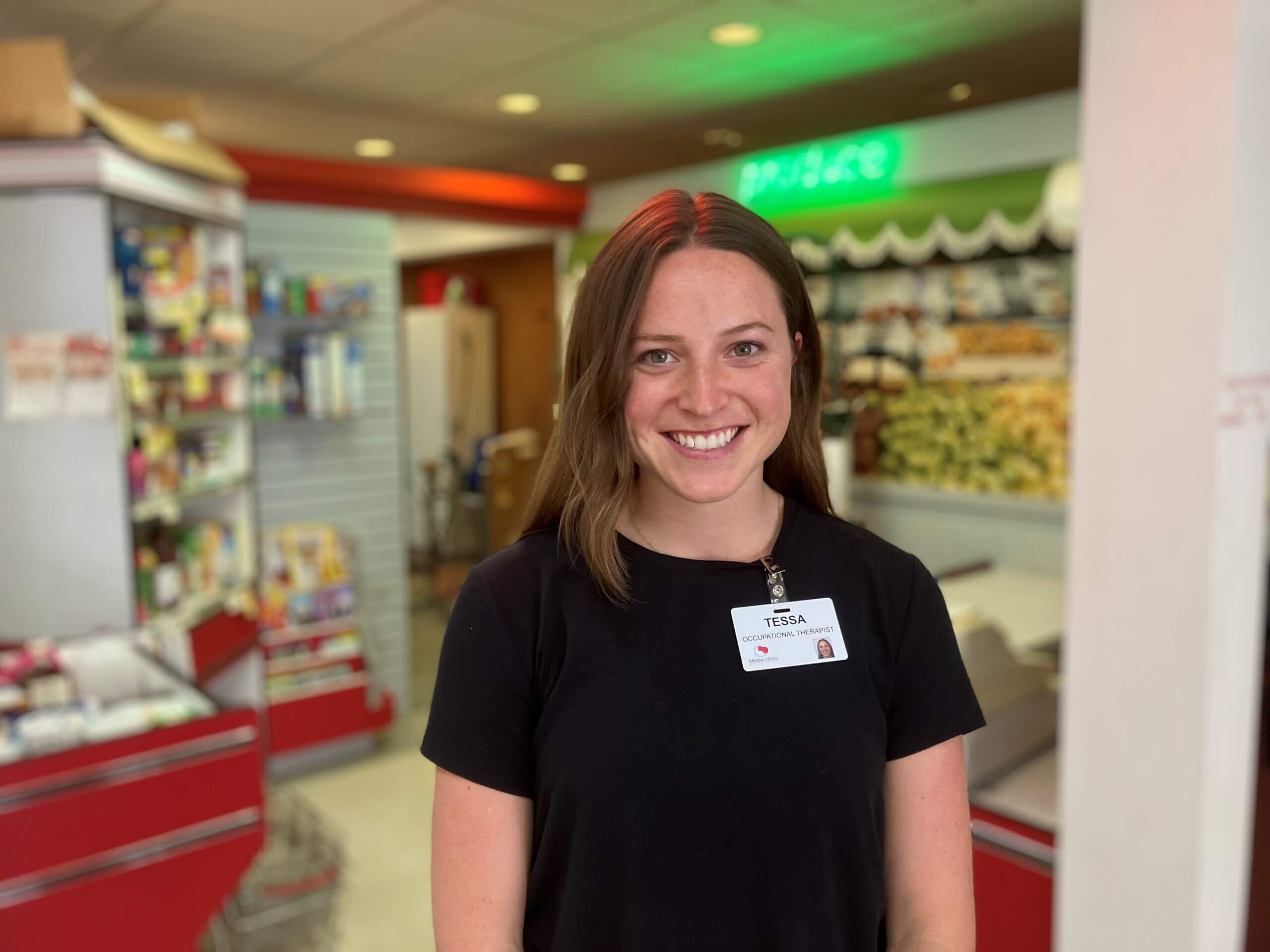
The worst of the pandemic may be over, but for many long COVID patients seeking care at MHC, the struggles seem endless.
Occupational therapist Tessa Bruce says 50 per cent of clients at Easy Street rehabilitation are now dealing with severe anxiety, brain fog, and fatigue.
“It is quite debilitating,” Bruce said. “From not being able to get dressed in the morning to not being able to shower.”
Bruce said treating long COVID patients is a complex and lengthy process.
“It is impacting their daily life activities like going outside for a walk, doing things they enjoy, or going to work.”
She said many of her clients are forced to take a leave of absence from work as they learn how to cope with their new reality.
“It’s very anxiety provoking because they lose their sense of identity,” Bruce said. “For many it’s a complete overhaul of your life.”
Easy Street, which specializes in cognitive rehabilitation, recently launched new six-week group sessions to help those on their long COVID journey, specifically those who are combatting brain fog and anxiety.
“I’m really excited about that because it offers peer support,” said Sarah Snider, another occupational therapist at Easy Street.
“I think there’s so much to be had in those learned experiences, so many people come to this program and say ‘wow, I never met anyone else with long COVID,’ so it’s all about that connection and shared experiences,” said Snider.
The concept of treating people with long COVID is also something that’s fairly new for practitioners at Easy Street which traditionally sees those with brain injury or stroke.
But Snider said there are a lot of parallels in the treatment for improving cognitive function.
The department recently held a long COVID event alongside experts from the University of Manitoba at the Manitoba Lung Association where they heard multiple stories from patients still living with long COVID symptoms. The event was for educational and research purposes.
Bruce said the whole team at Easy Street takes great pride in knowing they are helping so many people get their lives back.
“Everyone we see has different goals and milestones they want to reach, so this is very much a goal-based program, and the focus is all about our clients.”
A report from the Office of the Chief Science Advisor of Canada said that more than 1.4 million people in Canada, or about 15 per cent of adults who had contracted COVID-19 as of August 2022, say they experienced symptoms more than three months after being infected.
Recreation therapist at MHC among UM Class of 2023!
Meet Eye Care Centre of Excellence’s two new residents
Meet Eye Care Centre of Excellence’s two new residents
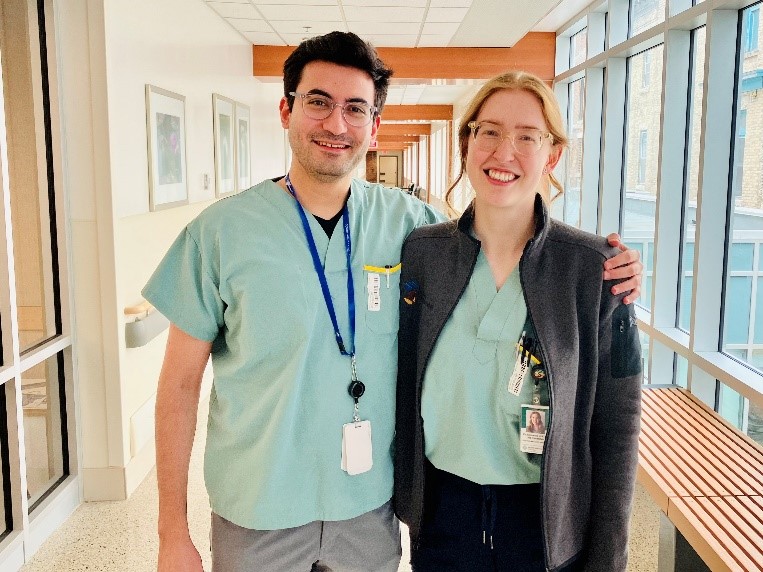
The eyes have always been fascinating organs for Dr. Katia Milovanova.
“There are a lot of beautiful things about ophthalmology,” she said. “I think the science behind how we see is very captivating, and the technology that we have now is just exhilarating.”
Milovanova is one of two new residents in our ophthalmology program this year and is more than ready to get started.
She said she loves the profession because she believes the results from this type of care is almost immediate compared to other medical specialties.
“I love that there is immediate feedback for the work you do,” she said. “The return is almost immediate with things like cataract surgery, treating eye infections for people, and then when their vision clears up it’s so incredible to see that.”
Dr. Parsa Mehraban Far is our other ophthalmology resident who is also eager to join the team at MHC. He did most of his medical training at Queen’s University in Ontario.
“For me personally it’s a very visual field, there’s very few other areas in medicine where you can directly see the pathology,” he said.
He moved to Canada from Iran when he was just 14-years-old and said he always knew he wanted to be an ophthalmologist.
“It’s a very rewarding profession in that I can see exactly what’s wrong with a patient, and why they can’t see well.
In the majority of cases, you can actually treat it and fix that problem,” Dr. Mehraban Far said.
“It’s also rewarding in the sense that you work with a lot of elderly people, but also people from lower social economic status who are disproportionately affected by many chronic illnesses like diabetes, high blood pressure and other causes of ocular pathology.”
He also likes that it’s a great mix of medicine and surgery.
“In ophthalmology you also do surgeries, so the combination of being able to do both [medicine and surgery] is what drew me to the profession,” he said adding he’s also enjoying his new life in Winnipeg.
“I really enjoy being in the city here,” he said. “I love the zoo, I got a membership now so I go there a lot!”
As for Dr. Milovanova, she grew up in Calgary and did most of her medical training in Edmonton. She moved to Winnipeg less than a year ago and she’s thrilled to be part of the Misericordia family.
“The people are lovely here, it almost has a grassroots environment feel to it,” she said.
“It’s an excellent place to train, the people are wonderful, and I’m very excited.”
New Operating Room Assistants join surgical team
New Operating Room Assistants join surgical team
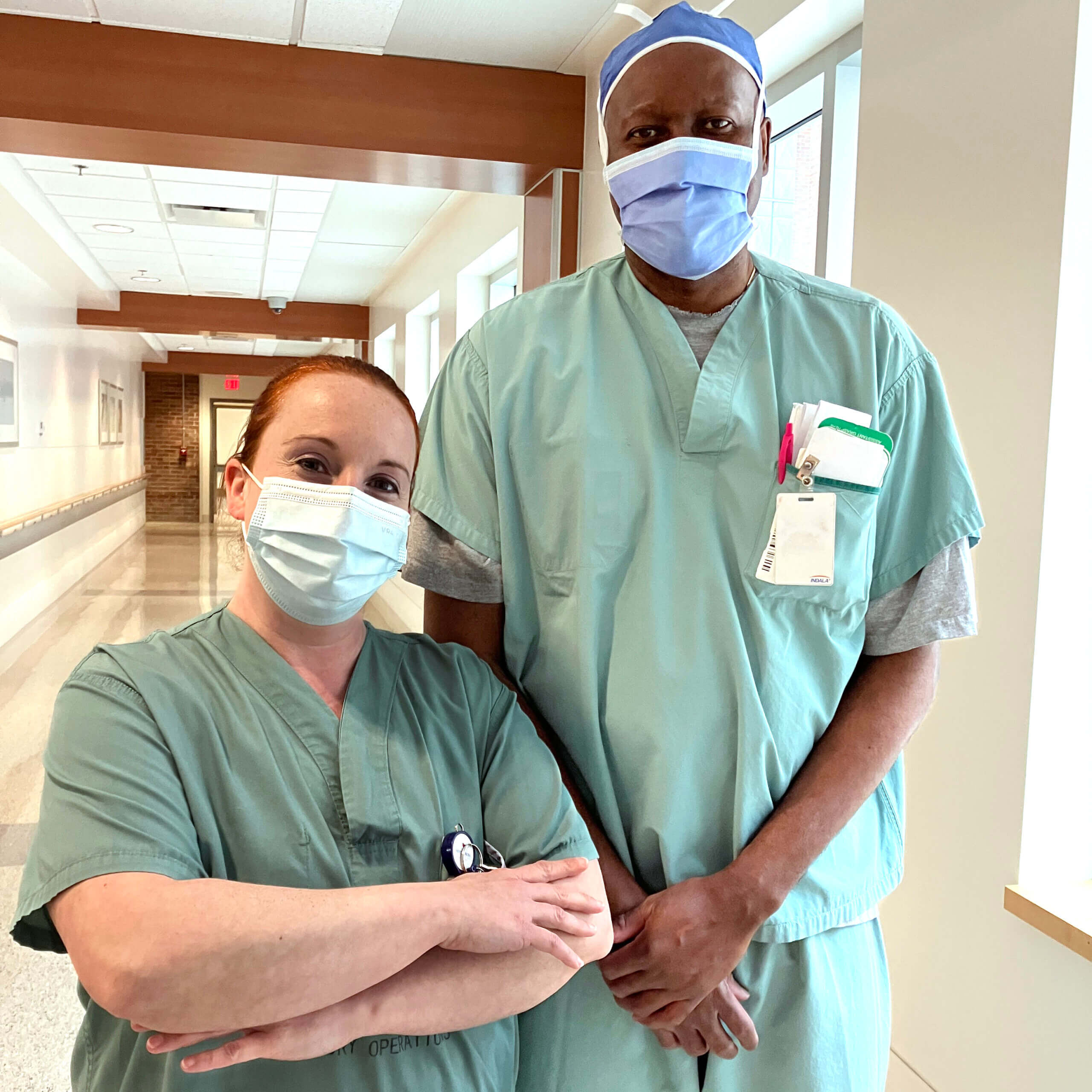
MHC is thrilled to welcome two new Operating Room Assistants (ORA’s) who will soon be assisting our surgical care team.
Tara Soares and Norm Gibbons are no strangers to the Misericordia family. Both are long-time employees who started working on site as health-care aides.
“I actually started at Misericordia as a housekeeper and then transitioned into a health-care aide,” said Gibbons.
He said after 15 years working as a health-care aide he was moved into a new role as an OR Supply Assistant where he was able to learn a new set of skills.
“As a health-care aide you’re pretty much maxed out what you can do and learn, so when another new opportunity came up, I applied and just went for it.
“So far it’s been very interesting,” he said.
To qualify, Soares and Gibbons had to have at least five years of experience working as health-care aides in the OR. They also had to complete a 12-week online course through Mohawk College in Ontario which included stringent onsite testing in Manitoba.
“Some of the classes were challenging,” said Soares. “We learned everything from human anatomy to surgical anatomy to microbiology.”
The two new positions are part of a larger provincial plan to add 70 new operating room assistants across Manitoba. The aim is to reduce waitlists for diagnostic and surgical procedures as mandated by the province’s Diagnostic and Surgical Recovery Task Force.
Responsibilities will range from decontaminating rooms and disinfecting surgery equipment, to transferring and preparing patients safely for surgery.
Soares said she has learned so much working closely with patients over the years and is very excited to take on this new role.
“I’m really happy to be starting this next adventure,” Soares said.
“I like that I will be able to assist more, be with patients inside the surgery room and be involved in the surgeries.
“I’m feeling great, and I’m ready.”



